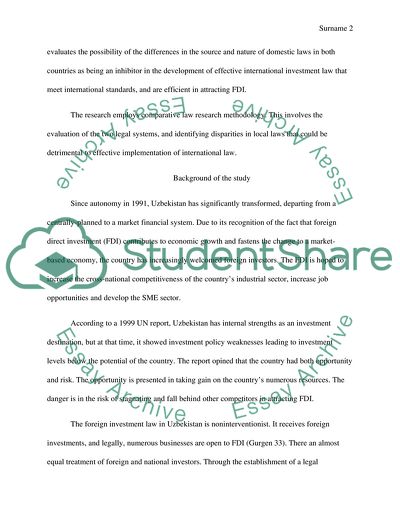Cite this document
(The Implementation of International Legal Standards in the Investment Assignment - 1, n.d.)
The Implementation of International Legal Standards in the Investment Assignment - 1. Retrieved from https://studentshare.org/social-science/1763941-the-implementation-of-international-legal-standards-in-the-investment-legislation-of-uzbekistan
The Implementation of International Legal Standards in the Investment Assignment - 1. Retrieved from https://studentshare.org/social-science/1763941-the-implementation-of-international-legal-standards-in-the-investment-legislation-of-uzbekistan
(The Implementation of International Legal Standards in the Investment Assignment - 1)
The Implementation of International Legal Standards in the Investment Assignment - 1. https://studentshare.org/social-science/1763941-the-implementation-of-international-legal-standards-in-the-investment-legislation-of-uzbekistan.
The Implementation of International Legal Standards in the Investment Assignment - 1. https://studentshare.org/social-science/1763941-the-implementation-of-international-legal-standards-in-the-investment-legislation-of-uzbekistan.
“The Implementation of International Legal Standards in the Investment Assignment - 1”, n.d. https://studentshare.org/social-science/1763941-the-implementation-of-international-legal-standards-in-the-investment-legislation-of-uzbekistan.


